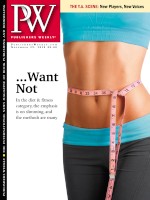While consumers are changing the way they buy and listen to spoken-word audiobooks, the demographic makeup of the market has stayed pretty much the same, a recently released survey sponsored by the Audio Publishers Association found. Audiobook listeners tend to be better educated (21% have completed postgraduate work) than nonlisteners and more affluent (median income of $56,000 compared to an average of $43,000), while also being avid book readers who read more books annually than nonlisteners.
The ability to download audiobooks continues to draw younger readers, with 23% of audio listeners 18–24 years old, the survey found, and audiobook listeners in that age bracket are twice as likely to buy audiobooks from an online retailer or digital store than other age groups. "The survey confirmed much of what we knew," said Janet Benson, president of APA and v-p/publisher at the Audio Partners, but, she added, there were some nuances. The most striking, said Benson, was the amount of pass-along use of CDs. There is a significant amount of sharing of audiobooks among friends and family, Benson said, while audiobooks also remain popular lending items at libraries. Librarians were the third leading source of information about audiobooks, following recommendations from friends and Web sites. And despite the popularity of social media, few consumers used that channel to get information on audiobooks.
The consumer survey, conducted in summer 2010, also supported the findings of the APA's 2009 sales survey, which found that while most audiobook users listen to CDs, the number of consumers who have downloaded an audio has grown, with 15% of all adults, and 19% of teens, reporting that they have downloaded an audiobook. "Certainly more people have tried downloading," said Benson, observing that while she doesn't see the retail market going away, new approaches need to be explored to keep that segment viable.
Helping to fuel the growth of digital audio is price. Downloadable audio is usually less expensive than CDs, and the recession has given a boost to digital alternatives as price became a more important factor in a consumer's decision to buy an audiobook. In the 2008 consumer survey, price was the fourth most important factor people cited when buying an audiobook, but rose to second in 2010, trailing only subject matter. The most recent survey also found more people buying less expensive audiobooks: 15% paid less than $10; 26% paid $10–$19; 9% paid $20–$29; and 3% paid $30 or more (the remaining 47% of consumers said they don't buy e-books or didn't know the price they paid).
The car remained the most popular place to listen to an audiobook, but more people are listening at home. "I was astonished by the number of people who fall asleep listening to an audiobook," Benson said.



 Volume 257
Issue 47
11/29/2010
Volume 257
Issue 47
11/29/2010





